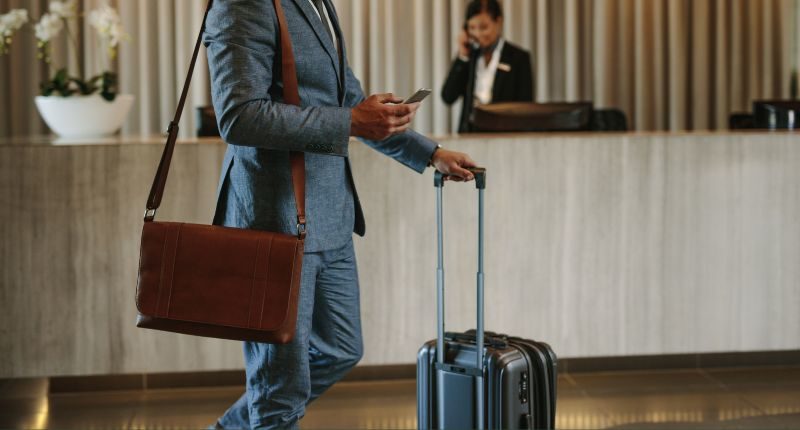- Business travelers seem to be opting for fewer and longer trips
- The blended work and leisure travel has been dubbed "bleisure"
- Corporate bookings now average five days in comparison to four days in 2019.
Hotels in both capital cities and regionally are embracing the steady return of corporate bookings but the ‘new normal’ of business travel sees a change in the way corporates approach to travel.
Business travellers are now opting for longer stays than before the pandemic according to the hotel group, Choice Hotels Aisa Pacific. Bookings now average five days in comparison to four days in 2019.
However, this does not mean that corporates are necessarily travelling more. One of the key trends identified by Choice Hotels is that travellers are opting for longer stays but fewer stays.
The bleisure trend
Choice Hotels CEO Trent Fraser explained that corporates seem to be doing more with their travel, including some leisure.
“Workers are fitting more into their trips such as taking the time to network or attend events, involving more nights away for additional work or social engagements.
“They’re also tacking on leisure trips to their business trip, including a weekend with friends or family away with their weekly work commitments.”
Trent Fraser, Choice Hotels CEO
This work and leisure blend has been dubbed “bleisure.” This is where business travellers will include days of leisure in their work trips. While these arrangements exsited pre pandemic they have become more mainstream now.
Mr Fraser explained that these longer corporate visits have translated into 20% growth on pre-pandemic length of stays.
Corporate travel recovery
The recovery of corporate travel is bound to show different trends than leisure travel. This is something outlined in the American Hotel & Lodging Association (AHLA)’s annual State of the Hotel Industry report, published in January. The AHLA made the prediction that “while leisure travel will likely return fully in 2022, business travel is projected to remain significantly below pre-pandemic levels.”
However, Choice Hotels has exhibited confidence in its performance this year. The group reports that CBD properties within their portfolio have seen strong growth in the first half of this year.
Mr Fraser has identified as Sydney the most popular destination, with the city leading the return of business stays.
“Occupancy levels in Sydney continued to climb steadily through May and June, and into July and we see this trend continuing in forward bookings out to the end of the year,” Mr Fraser says.
“Adelaide CBD is also enjoying a solid recovery, with occupancy up 21% on similar market competitors, and 67% on 2021 figures,” he added.
Mr Fraser says the Choice Hotels group has experienced a rebound across their city hotels and resilience within their customer base, so another change of pace would dramatically impact what is a promising outlook.
“Right now, corporate forward bookings are strong. This travelling segment has adapted and knows how to travel and stay safe with Covid and work within these new conditions.
“Our early figures for the first half of 2022 show this segment eclipsing 2019 figures – it’s a strong market that is playing catchup and they will be hesitant to return to remote working,” says Mr Fraser.








